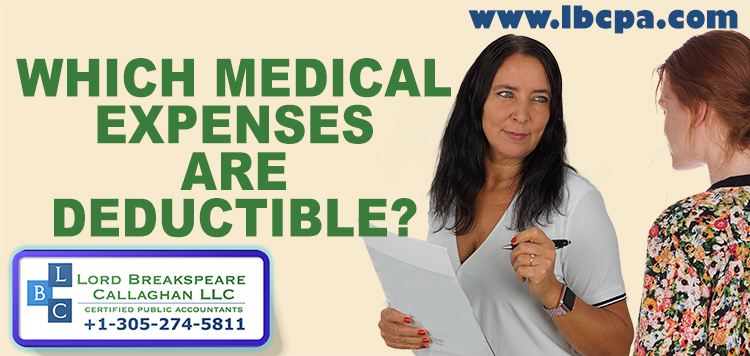LBCPA News 
Click here to go back
The Deductibility of Medical Expenses
The Deductibility of Medical Expenses
Individual taxpayers may be able to claim medical expense deductions on their tax returns. However, the rules can be challenging, and qualifying can be difficult.
5 key points
Here are five points to keep in mind:
1. You must itemize to claim the deduction and have a lot of expenses. The medical expense deduction can be claimed only to the extent your unreimbursed costs exceed 7.5% of your adjusted gross income. If your total itemized deductions in 2023 will exceed your standard deduction, moving or “bunching” nonurgent medical procedures and other controllable expenses into this year may allow you to exceed the 7.5% floor and benefit from the deduction.
2. Health insurance premiums may help. These can total thousands of dollars a year. You may be able deduct the portion of the premiums that you pay for employer-provided health coverage, but only if they aren’t taken out of your paycheck pre-tax. Long-term care insurance premiums are also included as medical expenses, subject to limits based on age.
3. Transportation counts. The cost of getting to and from medical appointments counts as a medical expense. This includes taxis, public transportation or using your own vehicle. Vehicle costs can be calculated at 22 cents a mile for miles driven in 2023, plus tolls and parking. Alternatively, you can deduct certain actual costs (such as for gas and oil) that directly relate to your medical transportation.
4. Controllable costs are key. These include the costs of glasses, hearing aids, dental work, mental health counseling and other ongoing expenses in connection with medical needs. Purely cosmetic expenses generally aren’t eligible. Prescription drugs (including insulin) qualify, but over-the-counter medications and supplements such as aspirin and vitamins don’t. The services of therapists and nurses can qualify if they relate to medical conditions.
5. Don’t overlook smoking-cessation and weight-loss programs. Amounts paid for participating in smoking-cessation programs and for prescribed drugs designed to alleviate nicotine withdrawal are deductible. However, nonprescription nicotine gum and patches aren’t. A weight-loss program is deductible if undertaken as treatment for a disease diagnosed by a physician. Deductible expenses include fees paid to join a program and attend periodic meetings. The cost of diet food isn’t deductible.
If you have any questions regarding Essential Business Accounting, Domestic Taxation, International Taxation, IRS Representation, U.S. Tax Implications of Real Estate Transactions or Financial Statements, please give us a call at +1-305-274-5811.
Source : Thomson Reuters






